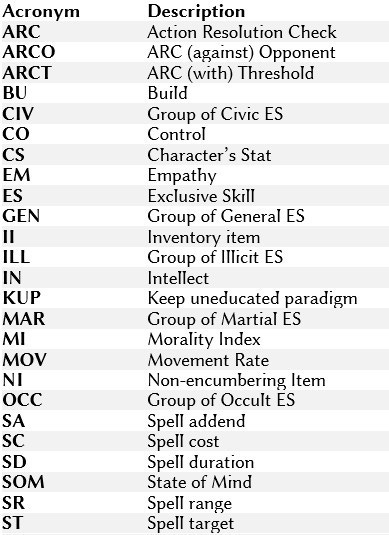HACKSSENTIAL RULES ~ CHAPTER I
I. Welcome
I.1 Foreword
Welcome to VI·VIII·X. In this game, most of the mechanics are managed by the GM. While players are involved in every phase, their mechanical responsibilities are deliberately lighter. This is meant to let them focus more on the world and enjoy the flow of the game itself.
This approach is known as the KUP model. Although no single rule defines it outright, this philosophy is applied as consistently as possible throughout the system. These “new” rules may feel innovative, or simply different from other RPGs. The goal is a distinct style of gameplay and player experience.
The idea is simple: in a game where much remains unknown, players pay closer attention and tend to have more fun.
I.2 Introduction
This game is built around a deliberate gap in knowledge between the GM and the players. While the GM is expected to have significant experience, the players may be newcomers. In fact, the less the players know, the better. This design philosophy is called the Keep Uneducated Paradigm, or KUP.
The core idea behind KUP is information asymmetry. Unlike most RPGs where players are given full access to the mechanics and rules details, here the GM holds all the information, and the players are not meant to see the whole picture. This frees players from these responsibilities, allowing them to focus on the story, atmosphere, and their characters’ decisions in the moment. The aim is to create a more immersive and enjoyable experience.
A Few Notes for the Reader.
The standard use of he/him throughout the text is intended purely for readability. It refers inclusively to all genders and is not meant to exclude anyone. We fully recognize that gender is diverse and personal and extends beyond traditional binary definitions.
The word malus is used to mean penalty, in order to stay consistent with the opposing term bonus. This book uses the metric system for weights and distances. The table below provides approximate conversions to help readers more familiar with the Imperial (Anglo-Saxon) system. These are simplified estimates meant to ease gameplay, not precise conversions:
VI·VIII·X list of acronyms:


